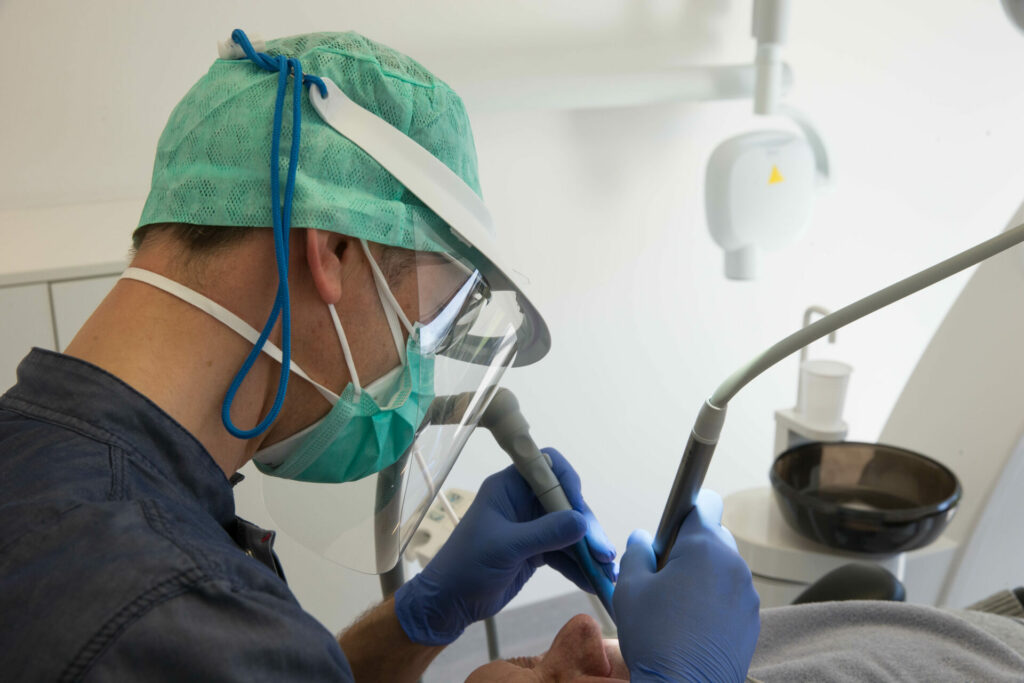Half of people in Belgium has been found not to go to the dentist regularly, mainly due to financial concerns. Humanitarian organisation Médecins du Monde blames high co-payment rates for dental care and the lack of dentists who accept the capped prices set by the national health insurance system.
On Monday, the organisation launched a new campaign to demand more affordable dental services. It requests better health insurance reimbursement schemes, more clarity on prices and a policy to incentivize dentists to work with the capped prices.
"People in precarious situations are up to 70% more likely not to consult a dentist for three consecutive years," the Médecins du Monde (MdM) campaign states. "No other type of treatment is so often postponed for financial reasons."
Belgians must shoulder expensive co-payments for dental visits. This is the part of the bill that is covered by the patient after their insurance company pays the other part. It reaches 57% for dental services. In neighbouring countries, these fees are considerably lower – just 20-25% in Germany and the Netherlands.
Procedures like dental crowns are not reimbursed at all by Belgian social security. Their alternative – removable prostheses – are only partially reimbursed and over a period of years. Orthodontic braces can cost up to €5000, of which only around €500 is reimbursed.
Private practices
A nationwide shortage of dentists who are “conventionnés” makes it difficult to find a practician who will carry out procedures at the official rates agreed with health insurers. Currently, 40% of dentists in Belgium do not work under the agreement and can set their own prices.
This number has grown significantly over time: in 2006 just 28% of dentists worked outside the official rates. The overall spending of Belgian patients on dental care more than doubled between 2008 and 2019, according to the World Health Organisation.
"The Minister of Health and the parliamentarians have been very clumsy with regard to dentists who are conventionnés", Michel Devriese, the president of the Belgian Dental Medicine Society told La Dernière Heure. "We have been asking for a reform of the system for five or six years. A more flexible system would avoid a binary system. Dentistry risks becoming an intervention for the rich whilst those without the means must suffer."
Related News
- People are twice as likely to live to 100 in Martinique than Belgium
- WHO warns of ticking timebomb in European health care
A lack of dental care can have knock-on effects on a patient's health. "When you have a tooth cavity, painful chewing or missing teeth, eating becomes complicated and you can risk malnutrition through poor eating choices," explains medical expert Alice Mayance. Another possible consequence is depression: "You have an altered self-image, a loss of self-esteem, difficulties in socialising."
Inaccessible dental care is not an exclusively Belgian problem. In a 2022 report, the World Health Organisation found that the share of public spending on oral care is lower than most other health services across the European Union.
Nearly half of the adult population in the EU suffers from oral diseases, even if many of them are largely preventable in early stages.

